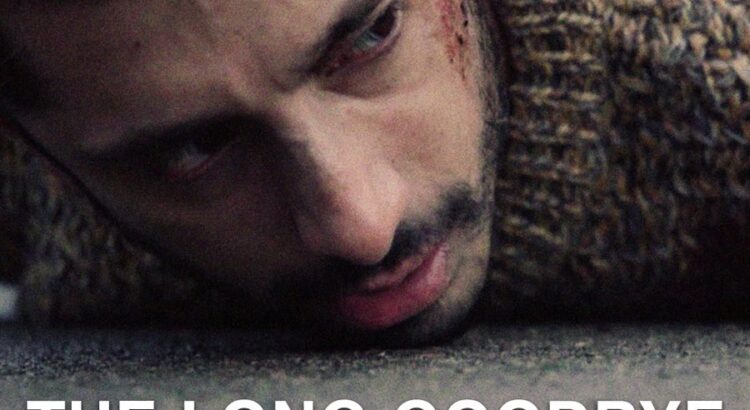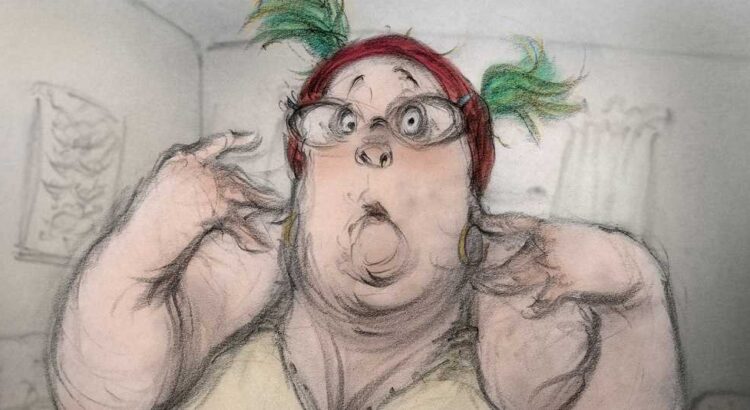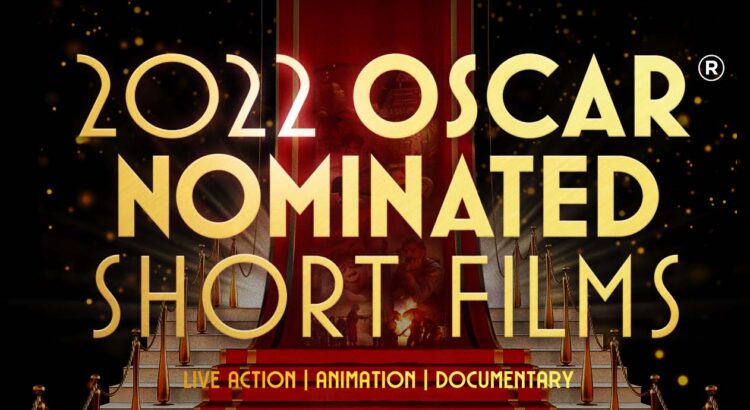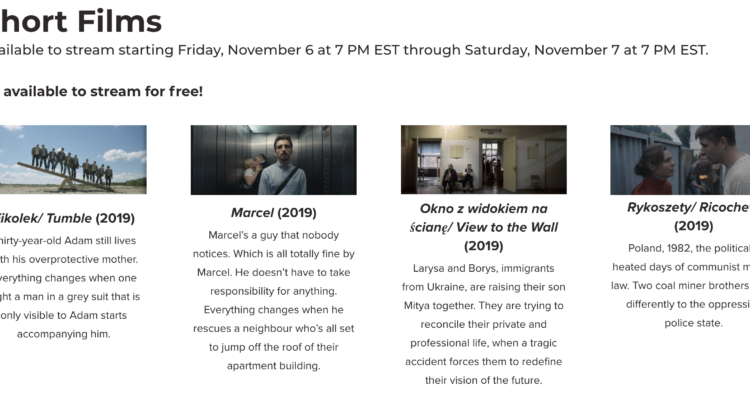Short stories, done through any medium, have always felt the most challenging and striking to me. Reading Neil Gaiman in high school English really sealed that feeling for me, especially the story collection Smoke and Mirrors: Short Fictions and Illusions. There’s a good amount of slack inside a full-length text that simply doesn’t exist for short story tellers, and in losing that there is a whole lot of additional meaning, interpretable and explicit, that invites itself in. Maybe that’s why I think and write and feel only in vignettes.
So let’s not waste any more time: here’s what I thought:
 Tumble, style-wise, did not meet my expectations. True, the colors were moody and there was an interesting rabbit motif hanging around (symbolic of timidity, hiding away, uncertainty in oneself, I think), but it was weirdly repetitive even while having a small running time. The lack of explanations for how Adam’s guardian angel becomes visible to others and solves the problems Adam shares with his mother (they fight to the very end, and nothing is resolved) had the potential to be open-ended mysteries for the audience to consider, but they just feel too much like actual plot holes.
Tumble, style-wise, did not meet my expectations. True, the colors were moody and there was an interesting rabbit motif hanging around (symbolic of timidity, hiding away, uncertainty in oneself, I think), but it was weirdly repetitive even while having a small running time. The lack of explanations for how Adam’s guardian angel becomes visible to others and solves the problems Adam shares with his mother (they fight to the very end, and nothing is resolved) had the potential to be open-ended mysteries for the audience to consider, but they just feel too much like actual plot holes.
Marcel was no doubt my favorite; I will always, always be a sucker for a soft and quiet romance. The frank tone of the film’s setup reminded me of my favorite movie, Amelie. The idea of a stark change like that happening (going from virtual invisibility to becoming a member of society) as a result of a chance event has so much magic in it. I was also a fan of the division of warm and cool colors/lighting throughout the movie; the glow of little changes. The ending was a point of disagreement between my friend and I, though–for whatever reason I assumed the last line implied she had jumped from the balcony while he slept, but my friend argued that Marcel was only expressing his happiness that the two were together in the same apartment. The ability to have two wildly different interpretations like that makes the movie all the more powerful. 
View to the Wall had a physical pull to it, like I was being closed into a clearly-defined, small space, drawn into Larysa and Borys’ new home.
 While I describe that like affection, I was cold throughout. Being artists, the characters were appropriately expressive, the actors who played them able to communicate minute, complicated emotional shifts very well. So much of the hopefulness of starting a family and starting anew as immigrants felt quite tragically earnest. Making a life for yourself is such a fragile thing.
While I describe that like affection, I was cold throughout. Being artists, the characters were appropriately expressive, the actors who played them able to communicate minute, complicated emotional shifts very well. So much of the hopefulness of starting a family and starting anew as immigrants felt quite tragically earnest. Making a life for yourself is such a fragile thing.
Ricochets  was more austere than I thought it would be, or maybe had hoped. The relationship between the brothers was not as thoughtful as it could have been, made a little too dichotomous. Still, it spoke quite clearly to how easily the state of the world can dissolve closeness.
was more austere than I thought it would be, or maybe had hoped. The relationship between the brothers was not as thoughtful as it could have been, made a little too dichotomous. Still, it spoke quite clearly to how easily the state of the world can dissolve closeness.
While these movies are no longer available to stream on the Michigan Theater site, be sure to check back periodically for more–the Michigan and State Theaters have been hard at work providing opportunities to see movies while their capacity for in-person viewing remains altered. Keep up to date at https://www.michtheater.org/blog/








 While I describe that like affection, I was cold throughout. Being artists, the characters were appropriately expressive, the actors who played them able to communicate minute, complicated emotional shifts very well. So much of the hopefulness of starting a family and starting anew as immigrants felt quite tragically earnest. Making a life for yourself is such a fragile thing.
While I describe that like affection, I was cold throughout. Being artists, the characters were appropriately expressive, the actors who played them able to communicate minute, complicated emotional shifts very well. So much of the hopefulness of starting a family and starting anew as immigrants felt quite tragically earnest. Making a life for yourself is such a fragile thing.


